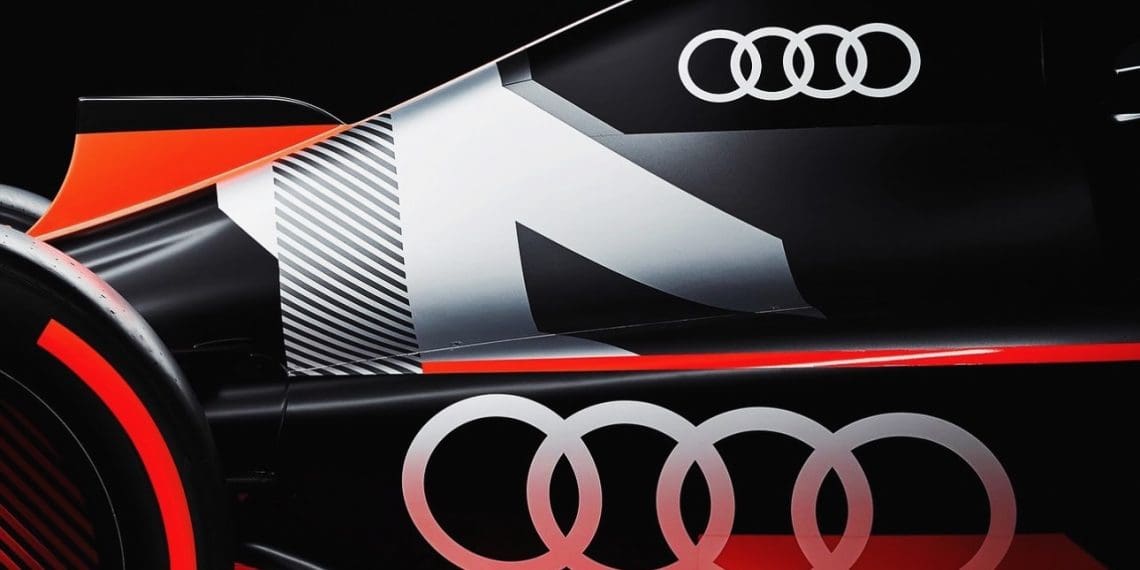Audi’s highly anticipated entry into Formula 1 in 2026 is already making waves, but fans hoping for a quick rise to the top will need to temper their expectations. According to Sauber Motorsport boss Mattia Binotto, Audi’s journey to the sharp end of the grid won’t likely bear fruit until 2030 at the earliest. As the German automaker takes over Sauber and rebrands the team to coincide with the all-new F1 regulations in 2026, the challenge ahead is nothing short of monumental.
BINOTTO: “WE’RE AT THE BASE OF EVEREST”
Binotto, who was appointed over the summer to oversee Audi’s F1 project, has made it clear that Audi is in for a long and arduous battle. “We are at the beginning of the climb,” Binotto admitted, describing the journey ahead as comparable to scaling Mount Everest. “In front of us is Everest, and now we can only see the base.”
Despite Audi’s storied success in motorsport, including endurance racing and rallying, F1 is a different beast entirely. Sauber, the team Audi is acquiring, has failed to score a single point this season, compounding the difficulties of building a competitive team from the ground up. Audi will face the daunting task of developing a brand-new power unit for 2026 while trying to elevate Sauber from the back of the grid to a top contender.
THE LONG-TERM VISION: “FIVE TO SEVEN YEARS”
While rumors have circulated that Audi might back out before even stepping foot on the F1 stage, the German marque remains committed to a long-term plan. Binotto has drawn parallels to Ferrari’s rebuild in the 1990s under Jean Todt and Mercedes’ rise to dominance in the 2010s, both of which took years to materialize.
“We are looking at a timeline of five to seven years,” Binotto explained. “Other teams have taken years to get to the top. Jean Todt joined Maranello in 1993, and Ferrari didn’t win the Constructors’ title until 1999. The same thing applies to Mercedes.”
Binotto’s realistic timeframe for success means Audi could be facing a five-year stretch before they become genuine contenders, with 2030 earmarked as the target for championship glory. Until then, they will be focused on rebuilding and developing their infrastructure to match the leading teams like Red Bull, Mercedes, and Ferrari.
STAFFING CRISIS: 400 PEOPLE SHORT
One of the biggest obstacles for Audi is the sheer size of their operation compared to F1’s dominant forces. Binotto highlighted that Audi is currently short by approximately 400 personnel compared to its top-tier rivals. “We need to add to that to be able to compete at the same level. They cannot be found in two days, and not necessarily from F1. Our choice is to invest in young people,” he said, indicating Audi’s focus on building a strong workforce from scratch.
This staffing shortage is a crucial element in Audi’s slow build-up to success. Top teams like Red Bull and Mercedes employ thousands of highly specialized engineers, designers, and strategists, all contributing to their dominance. Audi’s commitment to recruiting and investing in talent will be vital to closing the gap over the next few seasons.
DRIVER MARKET: WILL MICK SCHUMACHER JOIN HULKENBERG?
As Audi gears up for its 2026 debut, questions remain about who will drive alongside Nico Hulkenberg. The second seat on the Sauber grid for 2025 remains open, and Binotto has hinted that Mick Schumacher is a name being seriously considered. Schumacher, who previously worked with Binotto at Ferrari, could be a strong fit for the team’s long-term vision.
“Mick is certainly a name we are discussing,” Binotto said. The young German driver, son of F1 legend Michael Schumacher, is currently without a full-time race seat but remains a key figure in the F1 driver market. His potential partnership with Hulkenberg could be a strategic move as Audi looks to develop a competitive driver lineup for the future.
THE ROAD AHEAD: A LONG CLIMB TO THE TOP
Audi’s F1 ambitions are set, but the climb will be steep. With a new powertrain to develop, a massive recruitment drive needed, and a timeline that stretches to the end of the decade, the German giant is in for a challenging start. But with Mattia Binotto at the helm, Audi is playing the long game—building from the ground up to eventually challenge F1’s elite teams.
Fans and competitors alike will be watching closely as Audi embarks on this ambitious journey. For now, 2030 is the year circled on the calendar, but one thing is for sure: Audi is in Formula 1 for the long haul.










